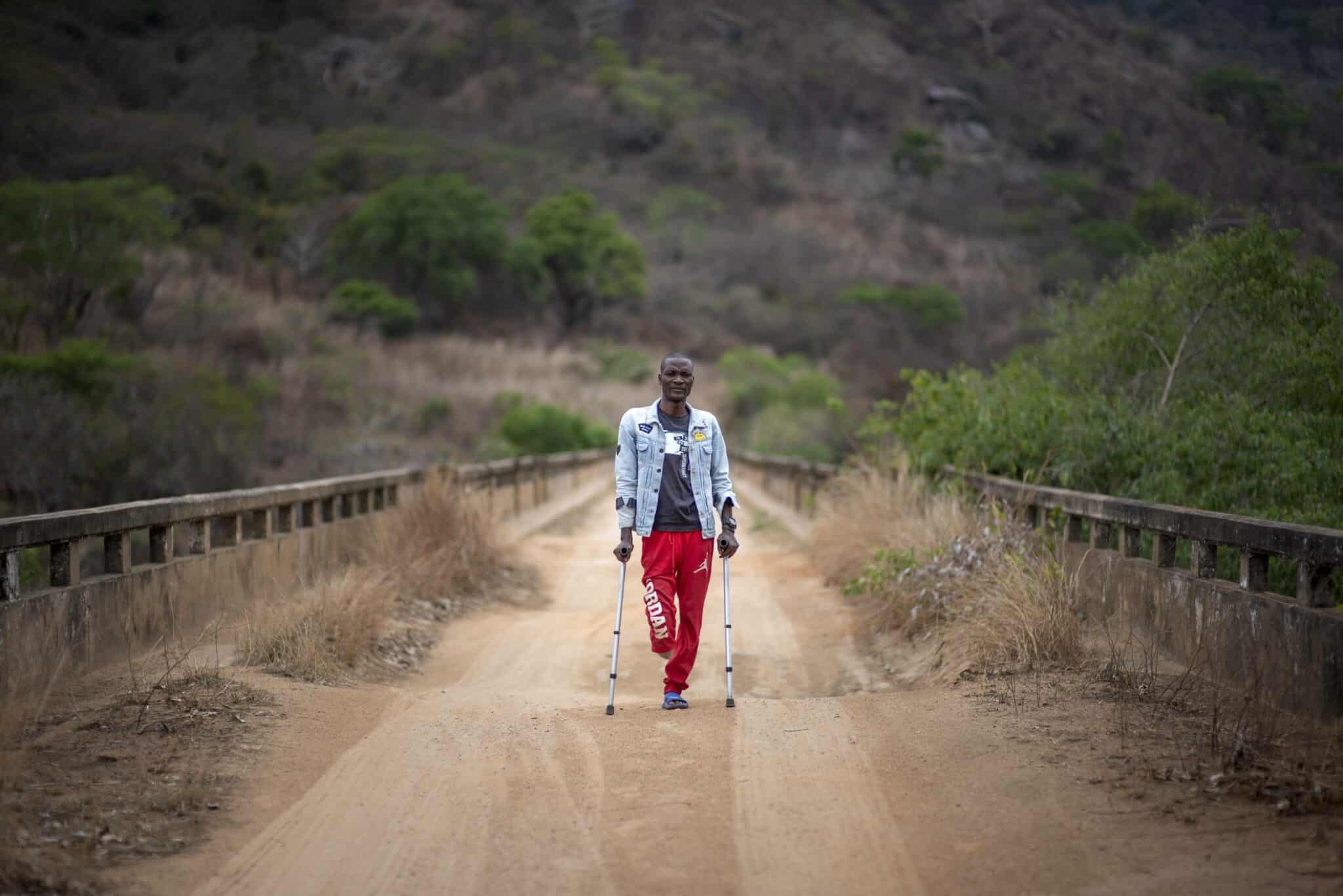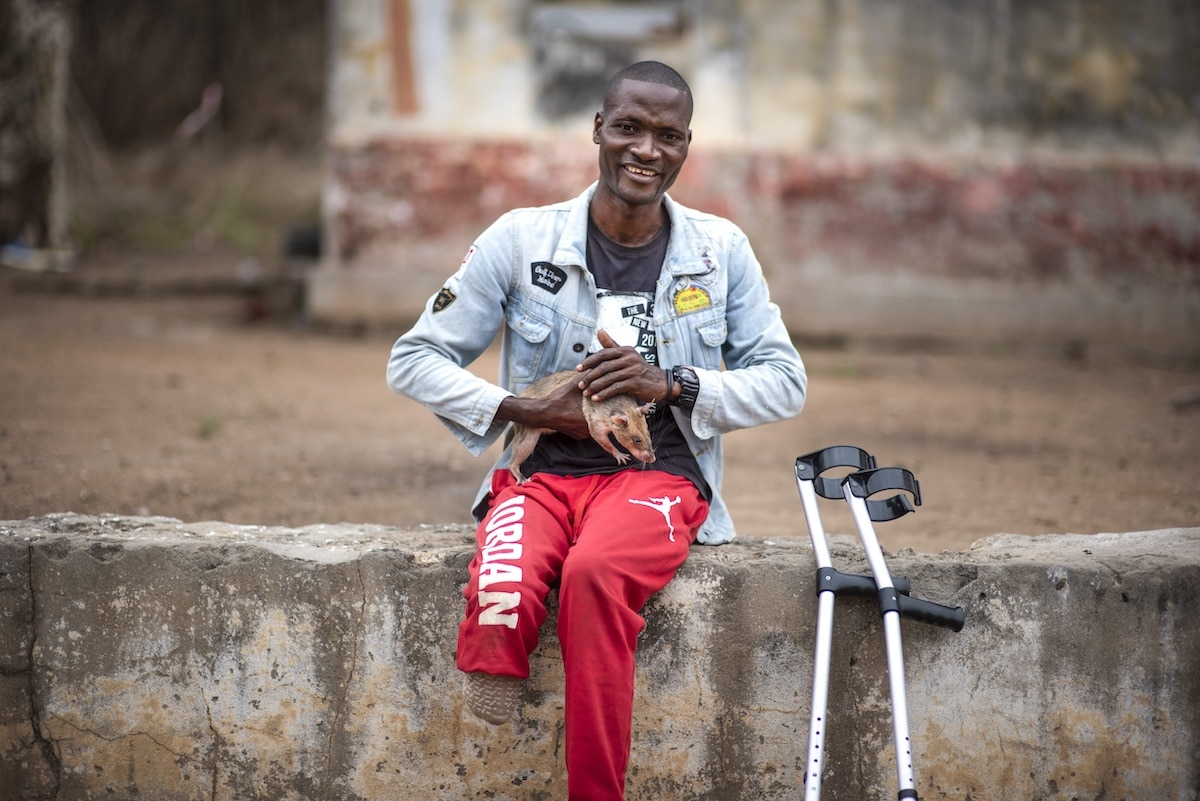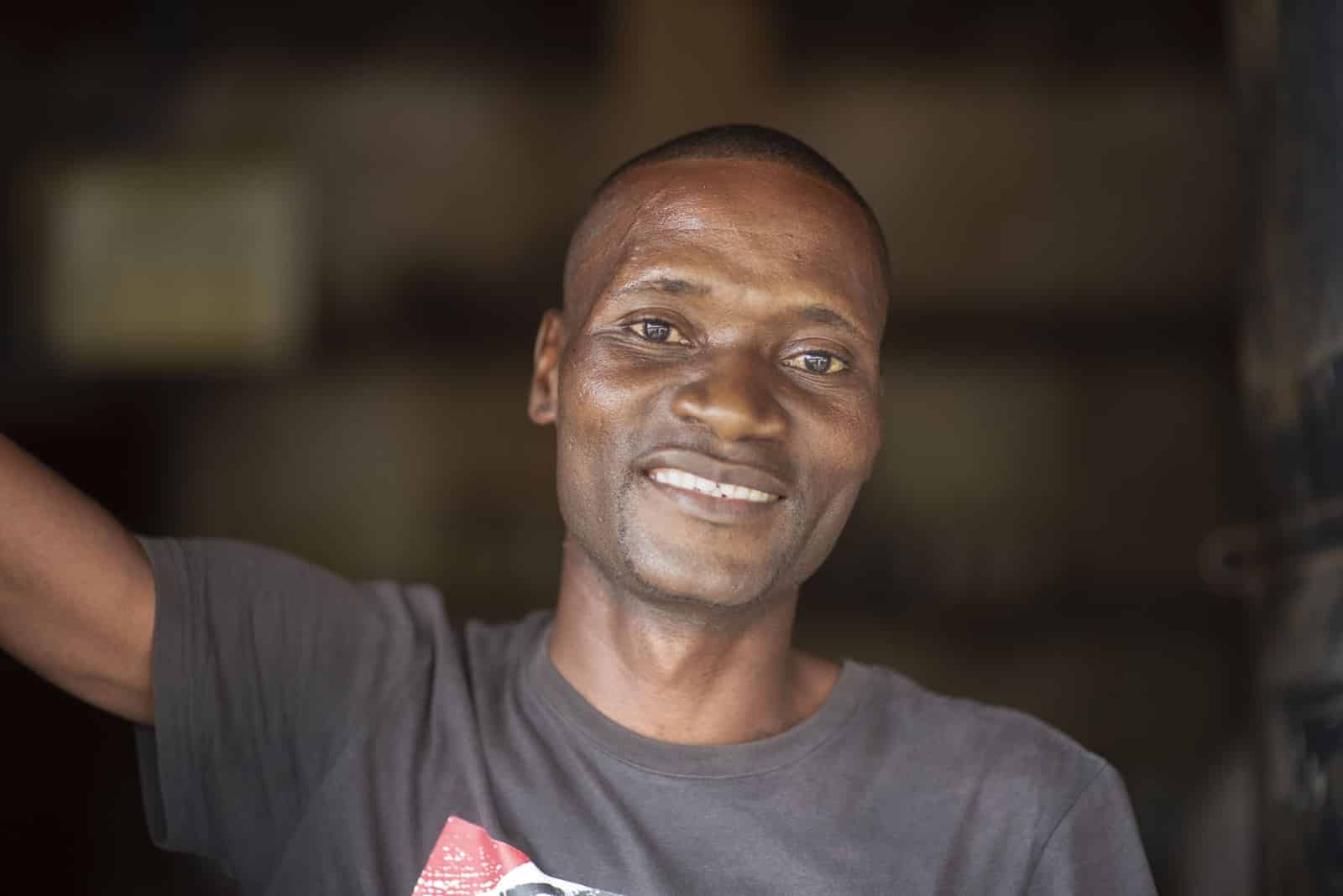Survival and Resilience in Ponte Filomena, Angola
“My name is João André, and I am 38 years old. I was born in this neighborhood, Ponte Filomena, near the border between Cuanza Norte and Cuanza Sul provinces, and have always lived here..
I have four daughters and four sons. The youngest is 3 years old and the oldest is 17 years old. All who are of age are studying. They walk to school. It is 6 kilometers from here to there. They go back and forth every day. It takes over an hour each way.
My wife’s name is Misa, she is 36 years old. She only works in the fields. Our land is three kilometers from the community. We go to the farm every day except Sundays. On Sundays, we go to church and we only go back to the land on Monday. At the moment we produce cassava, bananas, etc. We depend on the rain for cultivation. Right now, the cassava can still grow without rain. We will farm maize later because it depends on irrigation and we will wait for the rain. There is a stream there and the banana trees are next to the water so there is no problem with drought.
The Turning Point: Accident and Aftermath

The accident was on the south bank of the bridge, on the right side. I went from here to there and was near the bridge. It happened on October 28, 2017. I passed by there many times and always at night. I always fished there. It is a populated path. People pass there to drink water. I was going fishing. It was a Saturday. We had just finished work at the site and I was carrying my materials. On the same day, new boots and uniforms had been distributed at work. My wife had given birth five days before and there was nothing here at the fish market for us to eat. There were no signs on the bridge saying that there were landmines. I was alone when it happened. I took the net with the intention of going fishing and that’s when the accident happened.
It was 5:15 PM. Afterwards, I was transported to the hospital and only woke up 4 days later. My foot was half gone and I had shrapnel in my hand and arm. After the explosion, the police appeared because there was a station nearby. Our Chinese bosses came with the staff to help. And the ambulance of a different demining team that was here at that time, supported me. I was transferred from the Dondo hospital to Dalatando and evacuated in an emergency. My wife couldn’t visit me because she had given birth five days earlier. I was in Dalatando for two months and then in Dondo for another month.
I went to a clinic in Luanda to learn to walk again. I got a prosthesis and it took about 15 days to learn to walk again. I still have the prosthesis but now it’s broken and I don’t use it anymore. I got these crutches here. You have to buy the prosthesis. At that time we paid about $100, which is a lot of money.
Adapting to Change
Before the landmine accident, I worked on a construction site with a Chinese boss. I was a quarry assistant. I liked that job better. The salary from the one I have now is poor and it’s a bit difficult to buy the things I need.
Because of the accident, there are many things I can no longer do. I used to work on farms and in companies, but now it’s not logical for me to ask for work there in the physical state I’m in. My mobility and ability to do physical tasks are very limited.
So I’ve turned to a different kind of work to support my family. Now, I run a small stall where I sell items like cookies, soap, candies, salt, and baobab fruit. I rent a space where I set up my stall, and I carefully select and purchase goods during the off-season in March or April. I then sell these items when their prices go up to make a profit. My customers are all from our local area. This change in work was a necessity after the accident, but it has become a new way to provide for my family, although I now earn less money.
A New Chapter with APOPO

This demining work that APOPO is doing now is really being done properly. If they had come before, this accident would not have happened. I did not know that there were rats working on demining here. The first organization that came to demine in this area only had machines and didn’t cover every area. This demining that your group is doing, is better. And it was interesting to meet the rats. So small yet so helping so much.
Now I feel better and happy because the area is being cleared and this is a great asset for the community and we are more at ease.
I talk to my children at home about the mines. I say that if they find a strange object they should not touch it. They should run to the elders to call the authorities. There are now pictures of mines here so we can recognize them.
I hope that the APOPO workers have courage and faith in God to keep working. Keep strong in the service you are doing for us. It is a good deed for the people who live here.”

